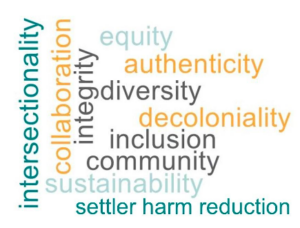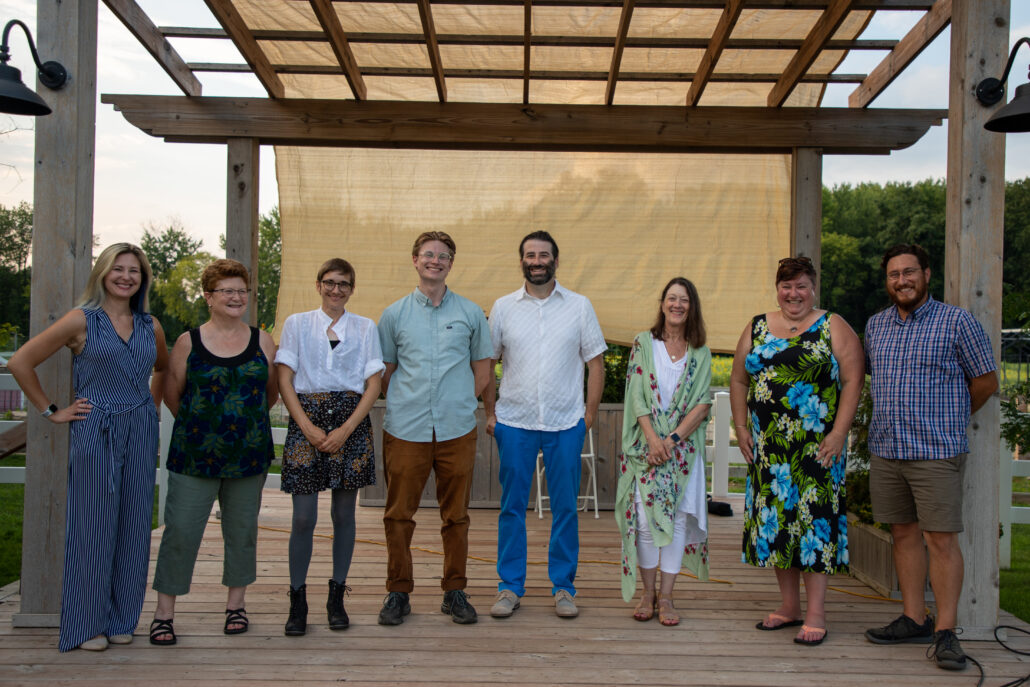As we kick-off our new fiscal year 2022, WMEAC is excited to announce some internal changes.
New Strategic Plan
In 2019, WMEAC began working on an update of its strategic plan. As with everything else in 2020, COVID slowed things down, and the strategic planning process continued into 2021. However, we are finishing it up and will be rolling it out in the next few months.
WMEAC’s new strategic framework will continue to focus on water protection, but raises up climate change and equity and inclusion as key focal areas as well. Our new mission statement to
Work collaboratively alongside our diverse community to educate, engage, and advocate for environmental values, environmental and climate justice, and a healthy and resilient community for all
places more emphasis on collaboration among diverse communities and on environmental and climate justice.
Our Board of Directors took guidance from our IDEAL (Inclusion and Development of Environmental Allies & Leaders) Committee, who drafted a white paper with recommendations and value lenses for integrating environmental justice into our strategic framework.
 To paraphrase the white paper, when our IDEAL initiative was started in 2013, WMEAC recognized a need for greater inclusion in its policies, programs, and outreach. IDEAL has supported WMEAC’s efforts to engage community organizations and successfully guided the organization in achieving Partners for a Racism-Free Community Level 1 certification. But, while WMEAC has benefitted from more inclusive internal policies and hiring practices, there is still a lot of work to be done to achieve an inclusive, diverse, and equitable organization. The IDEAL committee took a look at its role in supporting the organization’s goals and found that its purpose was not integrated into WMEAC’s mission, vision, or strategic plan. Accordingly, our new strategic plan strives to integrate IDEAL into the very core of the organization, and in so doing prioritizes these values and needs within staff programs and outreach.
To paraphrase the white paper, when our IDEAL initiative was started in 2013, WMEAC recognized a need for greater inclusion in its policies, programs, and outreach. IDEAL has supported WMEAC’s efforts to engage community organizations and successfully guided the organization in achieving Partners for a Racism-Free Community Level 1 certification. But, while WMEAC has benefitted from more inclusive internal policies and hiring practices, there is still a lot of work to be done to achieve an inclusive, diverse, and equitable organization. The IDEAL committee took a look at its role in supporting the organization’s goals and found that its purpose was not integrated into WMEAC’s mission, vision, or strategic plan. Accordingly, our new strategic plan strives to integrate IDEAL into the very core of the organization, and in so doing prioritizes these values and needs within staff programs and outreach.
Our new vision statement emphasizes equity, self-determination, and justice.
The communities of West Michigan have equitable access to resources to advocate and lead for a future that accords with the principles of environmental and climate justice.
We are actively pursuing and strengthening partnerships and program development to help us achieve this vision.
Staff Changes
WMEAC staff is weathering the pandemic, including remote and hybrid work spaces. However, to help support our new strategic framework, we have taken this opportunity to reorganize and elevate some of our program staff.
Elaine Sterrett Isely has been with WMEAC since 2012. She has grown our Water Programs, including collaborative programming and expansion beyond West Michigan to share what we have learned with other communities throughout the Great Lakes basin. She will be taking the role of Deputy Director to provide more leadership for our Water Policy Programming, as well as additional oversight over Water, Environmental Education, and Community Engagement Program staff.
Ericka Popovich joined WMEAC’s Communications and Community Engagement Team in 2017. She has been instrumental in leading our organization toward more inclusive and equitable programming. She has guided the IDEAL Committee’s efforts and helped organize the white paper, and she recently launched a climate change communication initiative with staff. She was moved up to Director of Engagement in 2020.
Carlos Calderon joined WMEAC’s Water Programs in 2020. He has been expanding the scope of our Rainy Day Project and Rain Barrel Programming, which have the goal of more inclusive implementation of green stormwater infrastructure practices throughout the City of Grand Rapids and West Michigan. He has come on full-time as our Water Programs Manager.
Kyle Hart interned for WMEAC’s Environmental Education Programs in 2016. He returned in 2018 to provide support for programming through the Summer and Fall, and then stayed to help transition the Environmental Education Program leadership. Since joining our team full-time in 2019, he has provided key program support for education and water programs, and has expanded the GIS capabilities for the organization as a whole. He has also worked on the implementation of virtual Teach for the Watershed and environmental education programming during the pandemic. He will take on a larger management and program development role as the Environmental Education Manager.
Sara Rose joined WMEAC in 2019. In addition to the administrative support that she brought to the team, she has also provided program implementation support for programs such as the Rainy Day Project and our climate change programming. She is transitioning to the role of Operations Manager.
Tanya Cabala joined our team in 2020 as our Lakeshore Outreach Organizer. Her role is to help expand our community programming and activism along the lakeshore. Based in Whitehall, she has been providing key connections to stakeholders in Muskegon, Grand Haven, and Holland. She will also staff a physical office in Muskegon once a more permanent space has been secured.
Bill Wood remains our stalwart leader as Executive Director, and Mary Robinson continues to guide us through our development strategies including events and grant-writing efforts as our Director of Development. We would like to wish Thea Van Goor, our Environmental Education Director, good luck as she transitions back to full-time teaching at Ridgemoor Park Montessori, Grand Rapids Public Schools.

